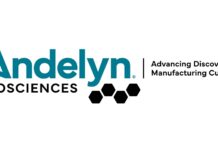Why Roche paid $1.9 billion for a 5-year-old company
Earlier this month, Roche, a global pharmaceutical giant, acquired Flatiron Health, an oncology-focused electronic health records (EHR) company, for $1.9 billion. Prior to this, Roche had a 12.6% stake in the company, and it decided to increase the stake by completely acquiring the business.
The company has a partnership with a large network of oncology clinics and a few major research facilities to gather patient data.
While it was not entirely unexpected for Roche to acquire Flatiron Health, this high-cost deal has surprised many people, as the value proposition of this deal is unclear. Some thought processes suggest that Roche could have intervened early to safeguard its own interest. But one thing is clear—Roche’s decision was not driven by Flatiron’s healthcare provider-client lists. There are enough regulatory barriers that prohibit a pharmaceutical company from directly collaborating with a provider in the US.
Flatiron’s Value Proposition – What It Brings to the Table
The Flatiron platform captures and normalizes both structured and unstructured oncology data from diverse source systems. It also captures unstructured data from sources such as laboratories, research repositories, payer networks, among others, and its analytics engine pulls out relevant insights from the unstructured data, which, when combined with electronic medical records (EMR) data, generate the real-world evidence.
Through its innovative approach, Flatiron addresses a few important issues: how to improve clinical trial results, how to optimize the process of clinical trial eligibility assessment, and how to enable pharmaceutical companies to innovate with groundbreaking research that progresses the human race and pushes the boundary of human capability.
Incentives for Roche – Stride towards Gaining Leadership in Highly Competitive Oncology Therapeutics Market
Oncology therapeutics contributes ~60% of the total revenue of Roche, and it is critical to maintaining the market leadership to sustain business performance. With the patent of its key drugs Rituxan, Herceptin, and Avastin set to expire in 2018, 2019 and 2020, respectively, only in the U.S., it is essential for the company to fast-track the development and approval of new drugs.
At the end of the fiscal year 2017, the company had as many as 31 oncology compounds in late-phase clinical trials. In such a critical business situation, the company is in dire need of utilizing real-world evidence and analytics solutions to fast track its clinical trials. Research suggests that only 3-5% of clinical trial enrollment yields desired results. The Flatiron platform is able to help identify the right patient cohorts for almost 15 types of cancer conditions for
clinical trials, which can help save developers millions of dollars.
For Roche, the regulator-worthy, clinical research-grade data, which is being extracted by the Flatiron Health oncology practice network in almost real time, is of immense value and can be used for readout of drug efficacy and utility. In a nutshell, Roche will save money on clinical trials, make quicker decisions, and have a faster time-to-market. A blockbuster drug takes approximately 12 years and $4 billion-$11 billion of investment. Flatiron may help Roche expedite market launch and save R&D cost for its upcoming oncology drugs.
Further, Flatiron oncology practice network and patient data can be used by Roche in its digital marketing initiatives, patient assistance programs, and other commercial applications. Considering that this network is highly specialized and focused on oncology, the acquisition provides Roche even greater competitive advantage in the oncology drugs market.
The Acquisition is a Much-needed Boost for Roche in a Highly Active Oncology Therapeutics Market Space
Oncology therapeutic companies have started 2018 on a high note. In January, Celgene acquired Juno Therapeutics for CRISPR CAS9 for CAR-T therapy, then Novartis’s new CEO, Vasant Narasimhan, stated that the company is looking to re-create its business structure as a “Data Science and Medicine Company,” and now Roche has acquired Flatiron Health. This is what we have seen for the global top three companies in the oncology therapeutics market.
Over the past two to three years, the pharmaceutical industry’s focus has been on utilizing patient data to gain an understanding of the complex interactions between drugs and organisms, and get insights on the impact that treatments have on the outcomes of health difficulties.
Another interesting aspect is that Roche also has a stake in Foundation Medicine, which is a genomics analysis company. Further, Roche signed a partnership with GNS Healthcare in June 2017 to use its REFS (Reverse Engineering and Forward Simulation) technology to analyze proprietary EHR and next-generation sequencing data for insights on drivers of drug response and cancer progression. By this means, Roche has one of the strongest portfolios of database and analytics platforms at its disposal to support its personalized drug discovery program in oncology.
This market direction is likely to push other pharmaceutical manufacturers to look for next-gen technology adoption to remain competitive in the market. We expect some similar merger and acquisition (M&A) and partnership activities from other major companies in the near future.


















